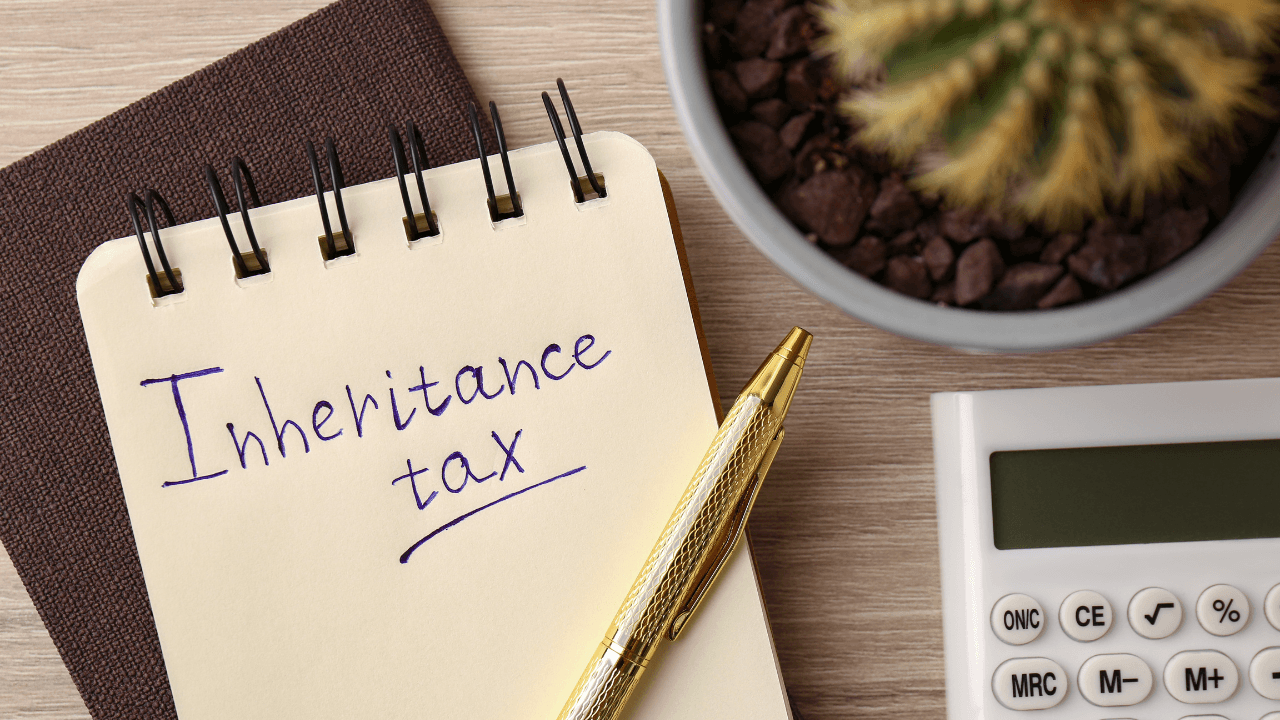Inheritance Tax (Or Lack Thereof) in Canada
There’s no inheritance tax in Canada, but estates can still owe taxes. Learn how it works and how beneficiaries can reduce the impact
Many Canadians mistakenly believe that they will have to pay an inheritance tax if they receive money or assets from a loved one's estate.
But Canada actually doesn't have an inheritance tax. Instead, the responsibility for taxes falls on the estate of the deceased, not on the beneficiaries.
This means that any taxes owing, such as those triggered by capital gains, must be settled by the estate before the remaining assets are distributed to the heirs.
In this article, we'll break down how estate taxation works in Canada, including what happens to capital property, RRSPs, RRIFs, and TFSAs after death.
We'll also look at important tax deferrals for spouses, the impact of probate fees, and key strategies to minimize taxes on an estate.
How the Estate is Taxed

When someone dies, the Canada Revenue Agency (CRA) treats most of their assets as if they were sold at fair market value immediately before death.
This is known as the deemed disposition rule. It makes sure that any unrealized capital gains on assets like real estate, investments, or businesses are taxed properly, even though the assets weren't actually sold.
The resulting capital gains are included in the deceased's final income tax return, known as the terminal return.
The executor or legal representative of the estate is responsible for filing this final return on behalf of the deceased.
This includes reporting all income earned up to the date of death and any capital gains triggered by the deemed disposition of assets.
The taxes owed are paid from the estate before any distribution to beneficiaries can take place.
When the final return is filed and taxes are paid, the executor should apply for a clearance certificate from the CRA, which confirms the estate has no outstanding tax obligations.
Without it, the executor could be held personally liable for any future taxes the CRA might later determine are owing.
Taxation of Specific Assets Upon Death
The way assets are taxed depends on the type of asset. Here's how different asset types are treated.
A) Capital Property
Capital property includes things like:
- Non-registered investments (e.g., stocks, mutual funds)
- Real estate other than a primary residence
- Businesses and partnership interests
- Cottages or rental properties
Upon death, these assets are considered to be sold at their fair market value as of the day before the person died (deemed disposition), which may result in capital gains.
The capital gain is the difference between the asset's adjusted cost base (ACB) and its market value at death.
50% of the capital gain is taxable and must be reported on the deceased's final return.
This tax liability can be substantial, particularly for real estate or business holdings that have appreciated in value.
B) Registered Investments: RRSPs and RRIFs
Registered investments like Registered Retirement Savings Plans (RRSPs) and RRIFs (Registered Retirement Income Funds) are treated differently:
- The full value of these accounts is added to the deceased's income in the year of death, unless the funds are transferred to a qualified beneficiary.
- If no eligible beneficiary is named, this can lead to a large tax burden on the estate, pushing the deceased's final income into a higher tax bracket.
C) Tax-Free Savings Accounts (TFSAs)
TFSAs maintain their tax-free status, but the outcome depends on the named beneficiary:
- If the spouse or common-law partner is named as a successor holder, the TFSA continues to grow and remain tax-free.
- If a different beneficiary is named, the TFSA stops growing tax-free after death, but the value at the time of death is still passed on tax-free.
- If no beneficiary is named, the TFSA becomes part of the estate and may be subject to probate fees, though the proceeds themselves are typically not taxable.
Tax Deferrals and Exemptions for Spouses and Qualified Survivors
When assets are transferred to a surviving spouse or common-law partner, Canadian tax rules allow for tax-deferred or tax-exempt treatment.
Capital property can be transferred as its adjusted cost base, deferring any capital gains tax until the spouse sells or passes away.
RRSPs, RRIFs, and TFSAs can be rolled over to a spouse without immediate tax consequences if they are named as the beneficiary.
Tax deferrals may also apply to financially dependent children or grandchildren, particularly those under 18 or with a disability.
The Principal Residence Exemption can eliminate capital gains tax on a qualifying home, further reducing the estate's tax burden.
Other Inheritance-Related Costs
Even without inheritance tax, receiving or managing an inheritance in Canada isn't straightforward.
Beyond the main estate, there are other costs and complications that can diminish the value of what's passed on.
These can come as a surprise to beneficiaries who assume the process ends once the will is read.
A) Probate Fees
Probate fees aren't technically a tax, but they're still a large estate cost.
They're paid to the province to legally validate a will and allow the executor to act.
Fees vary widely. Ontario can charge about 1.5% of the estate's value, while Quebec charges a small flat fee. Manitoba doesn't charge at all.
Naming beneficiaries on accounts or using joint ownership can help reduce probate exposure.
B) Inheriting from Abroad
Cross-border inheritances come with added complexity.
The estate may face taxes in the foreign country before assets reach Canada, and recipients may need to report large foreign assets.
Tax treaties can sometimes prevent double taxation, but expert opinions are usually needed.
C) Tax on Future Income from Inheritance
Even if the inheritance itself isn't taxed, any money it earns after the fact is.
Interest, dividends, rental income, or capital gains from inherited assets must be reported by the beneficiary in the year they're earned.
Selling inherited property for a profit can also trigger capital gains tax.
Tax-Free and Low-Tax Inherited Assets
Some inherited assets are completely tax-free or come with minimal tax implications.
These include cash, personal effects like jewelry and household items, life insurance proceeds, and vehicles.
These items are not considered taxable income and do not need to be reported by the recipient.
Life insurance payouts in particular are generally tax-free when a beneficiary is named on the policy.
Strategies to Minimize Taxes on Inheritance
One method of minimizing tax impacts is purchasing life insurance, as stated above.
Naming beneficiaries directly on accounts like RRSPs, RRIFs, and TFSAs also allows these assets to bypass probate, which reduces fees and potentially defers taxes when transferred to a spouse.
Joint ownership of property or bank accounts with right of survivorship is another way to avoid probate and ensure a smooth transfer.
Some people also establish trusts for more control and tax efficiency, especially for those over 65.
Gifting assets before death can reduce the size of the estate and future tax burdens, but this must be done carefully.
Gifting appreciated property may trigger capital gains tax immediately, and once given, the asset cannot be reclaimed.
Dates and Filing Deadlines

The CRA sets specific deadlines for filing the final return of a deceased person.
If the death occurred between January 1 and October 31, the final return is due by April 30 of the following year.
If the death occurred between November 1 and December 31, the return is due six months after the date of death.
Missing these deadlines can lead to interest charges or penalties, which can reduce the estate's value.
Executors should leave enough time to gather documents, calculate any taxes owed, and apply for a clearance certificate to confirm all tax matters have been resolved.
Why Estate Planning Matters
Estate planning is overlooked, and many Canadians remain under-informed about how taxes apply after death.
While there's no inheritance tax in Canada, that doesn't mean beneficiaries or estates are off the hook.
Proactive planning and open communication with loved ones can help reduce stress and preserve more of the estate's value.
Consulting with tax and estate professionals is important to understand the rules and make informed decisions.
Understanding how the system works and planning accordingly help protect you, your assets, and your wishes.
